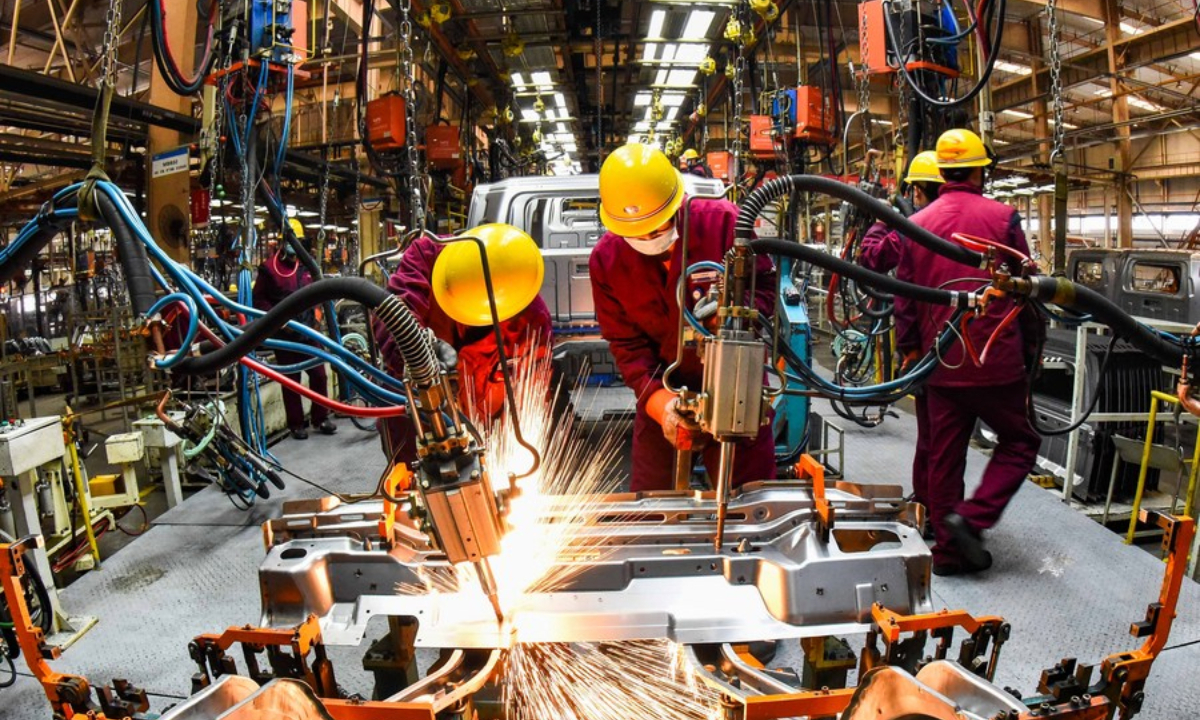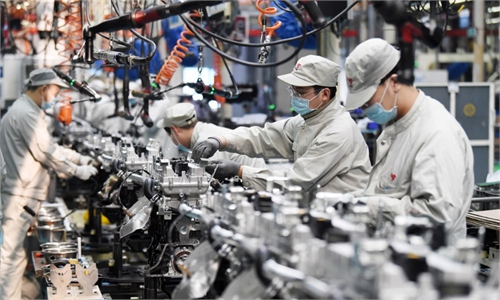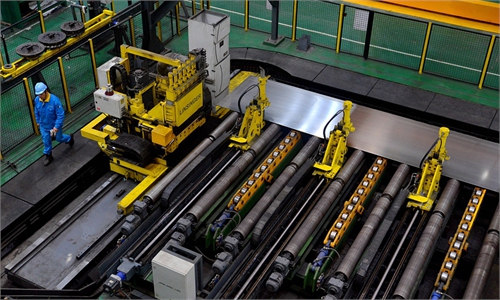Dawn of Industrial Internet: China accelerates efforts to transform traditional manufacturing

Workers weld at a workshop of an automobile manufacturing enterprise in Qingzhou City, east China's Shandong Province, Feb. 28, 2021. Photo:Xinhua
More Chinese enterprises are taking efforts to promote the application of the Industrial Internet platform, in a bid to promote the transformation and upgrading of traditional industries and push for advanced manufacturing.The Ministry of Industry and Information Technology (MIIT) recently released a list of 14 enterprises across the nation representing a cross-section of the Industrial Internet platform.
China's Industrial Internet has entered the application stage, and it is necessary to consider whether the platform can truly improve efficiency, overall digitalization capabilities, and reduce costs for enterprises, Jin Jiang, President of Guangdong Midea Cloud Technology Co told the Global Times in a recent interview.
He added that the success of the industrial Internet platform ultimately depends on whether it brings any social and economic values. "To put it bluntly, it is whether it can solve the practical problems for Chinese manufacturing enterprises."
For example, in terms of supply chains, China pays more attention to whether the platform can open up upstream and downstream connections, whether the information of each link can be directly connected, and improve the efficiency of collaboration, he added.
Data from MIIT showed that, as of the end of March this year, the number of industrial equipment connections that can be monitored had reached 30.72 million sets and the number of industrial apps exceeded 225,000 within the cross-industry Internet platform.
As the world's largest manufacturing country, the richness of China's manufacturing sector far exceeds that of other countries.
Wang Wenhua, chief architect and strategy planning director of Midea Group IT said that in the past, China mostly used industrial software sourced from the West, but these industrial software products based on Western experience can no longer adapt to multiple scenarios unique to Chinese manufacturing.
"If we need to change the software, the cost is high and the end effect is not necessarily good. In addition, we will face a range of technical problems," Wang noted.
Market watchers said this is also a major problem faced by China's Industrial Internet platform.
Jin said at the level of industrial software, although China's current management software such as ERP, manufacturing, supply chain management has developed rapidly, it is still difficult to break through R&D and software tools, both of which require significant manpower to get results.
As the core of the manufacturing industry, industrial software is widely used across the sector, covering R&D, design, production, collaboration and other manufacturing and production links.
However, data shows that China's industrial software currently accounts for only about six percent of global market share, according to 21st Century Business Herald earlier this month.
More cities are ramping up efforts to accelerate the digital and intelligent transformation of the manufacturing industry.
In Foshan, South China's Guangdong Province, the government proposed to set up a fund with a total scale of 30 billion yuan ($4.45 billion) to improve industrial transformation in July of 2021.
By 2023, Beijing will be built into a leading hub for the 'Industrial Internet' with global influence, according to an action plan released by the city's economy and information regulator in January.
Global Times



